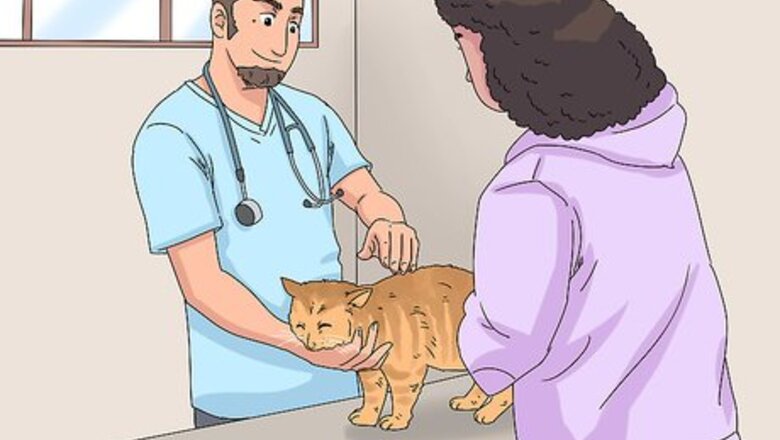
views
Diagnosing the Cause of Bloody Diarrhea
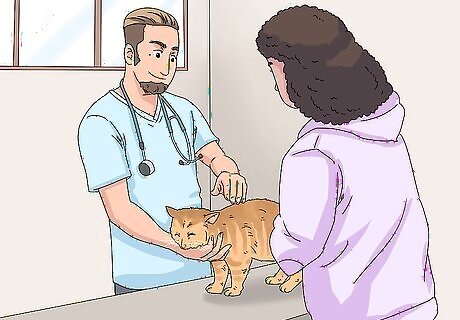
Take the cat to the vet. Blood in your cat’s stool may be due to a variety of conditions, so you need to take your cat to the vet as soon as possible. Bloody diarrhea can lead the cat to become dehydrated. Bloody diarrhea may be due to minor problems, like food intolerance, or serious conditions, like cancer. The vet will complete a physical examination and take a complete medical history.
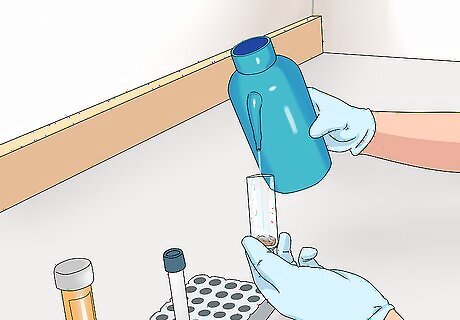
Get a fecal evaluation. The vet will probably do a fecal evaluation first. This takes a sample of the feces to check under a microscope. The vet will look for parasites and bacteria, which can cause blood in the stool. They will also look for the presence of blood.
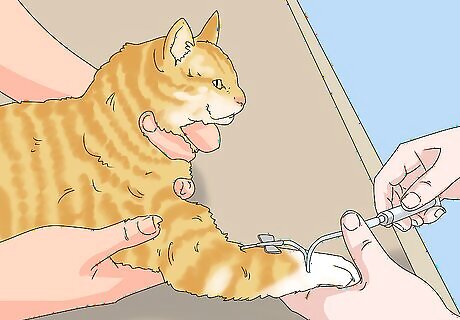
Have blood and imaging tests done. If the vet suspects a more serious condition or finds nothing in the fecal evaluation, they will then perform more tests. Blood tests will check for signs of infection, Feline Leukemia Virus, or Feline Immunodeficiency Virus. The vet may do a blood chemistry panel and perform other blood tests to check for certain diseases they suspect. They may check for anemia, liver disease, kidney disease, problems with the pancreas, or thyroid issues. The vet will do x-rays and other imaging tests if they believe there is a tumor, blockage, or other problem inside the cat’s body.
Treating Bloody Diarrhea
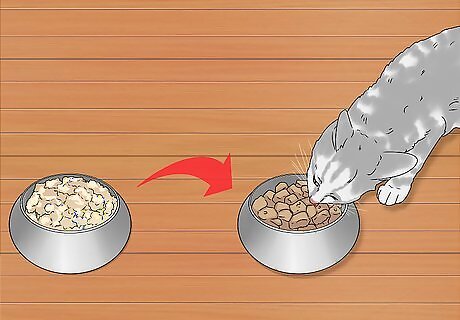
Change the cat’s diet. Food allergies may cause bloody diarrhea. If your vet believes this is the cause, you will be instructed to change the cat’s diet. If the cat has a food allergy, they will be given a food without the ingredient they are allergic to. Some cats may need fiber added to or fat decreased in their diet. Never change a cat’s diet suddenly. Always slowly phase out one food and replace it with the new food.
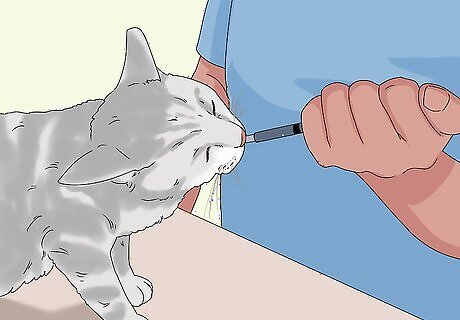
Give the cat medication. If the bloody diarrhea is due to a parasite or bacterial infection, the vet will prescribe medication. Antibiotics are commonly given to cats. If the infection is serious, the antibiotics may have to be given intravenous instead of orally. Dewormers may be given to treat or prevent parasite infections. Anti-inflammatories may be given to help reduce inflammation. Immunosuppressive drugs may be given to cats with inflammatory bowel disease. Anti-anxiety medication may be given to cats with irritable bowel syndrome.
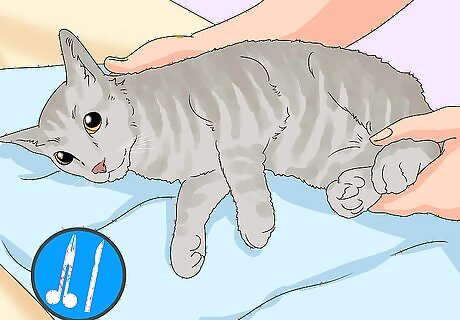
Have the vet perform surgery. If the cat has a blockage from a foreign body, the vet may perform surgery. Surgery may also be the treatment if the cat has cancer and the vet wants to remove the tumor.
Recognizing Symptoms

Identify blood in the stool. Bloody diarrhea is a symptom that needs immediate vet attention, so it's important to know what to look for. A cat may have blood in their feces from the small or large intestine. Keep in mind that the blood will look different depending on where the bleeding is coming from. Blood in diarrhea from the large intestine will be red and look like blood. You may see the blood on the litter and sides of the litter box, too. Blood from the small intestine will be black or dark brown in color. The dark-colored feces are often tar-like, but the blood may appear as dark flecks or specks in the feces as well. Dark or brown blood may be difficult to identify, so it's important to look for anything that looks abnormal.
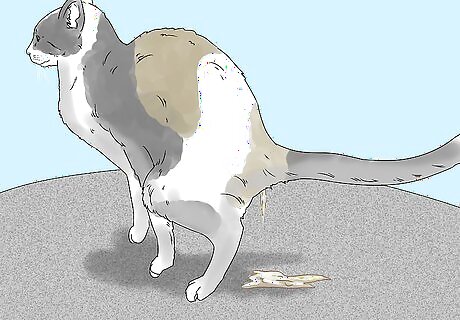
Determine if the diarrhea is acute or chronic. The vet can better diagnose the cause and find a treatment of the bloody diarrhea if they know how suddenly it started. Acute diarrhea means that it started suddenly. Chronic diarrhea is when the cat has diarrhea for several weeks. Intermittent diarrhea is when the cat has diarrhea, but it goes away, but it comes back again. This happens over several weeks.
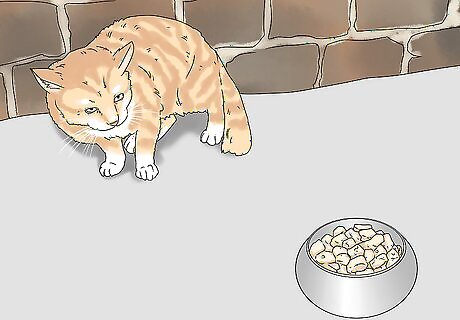
Identify related symptoms. Diarrhea may occur with other symptoms. The cat may stop eating and lose weight. They may become dehydrated or become thirstier than usual. The cat may also have fat and mucus in their feces. Some cats with diarrhea will eliminate outside of the litter box because they can’t control it. Cats may also experience flatulence. Being able to give the vet additional symptoms that occur alongside the bloody diarrhea can help them better diagnose the underlying condition and find the appropriate treatment.




















Comments
0 comment